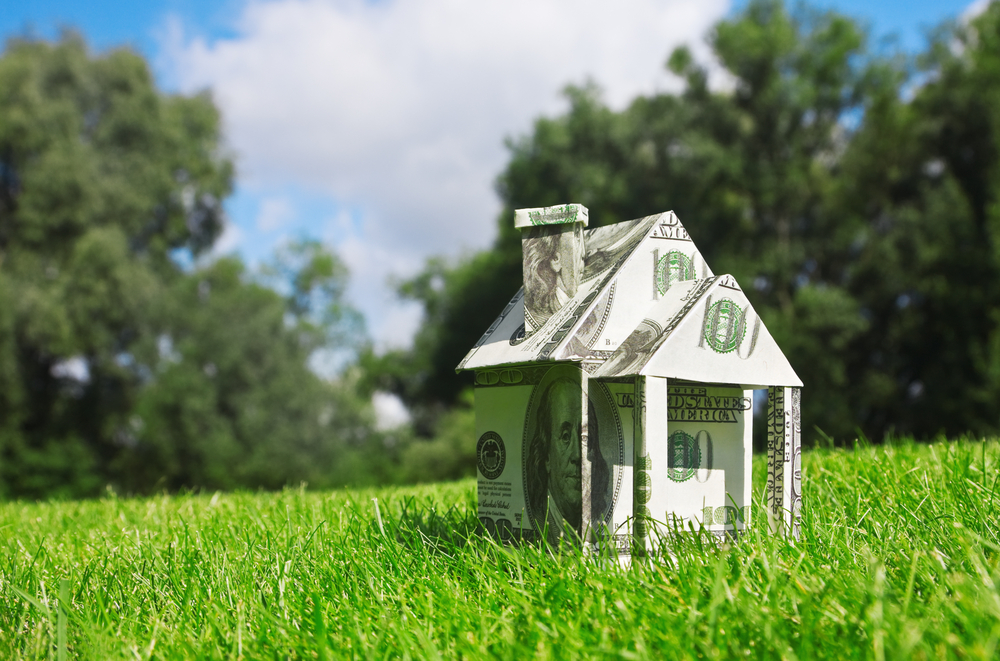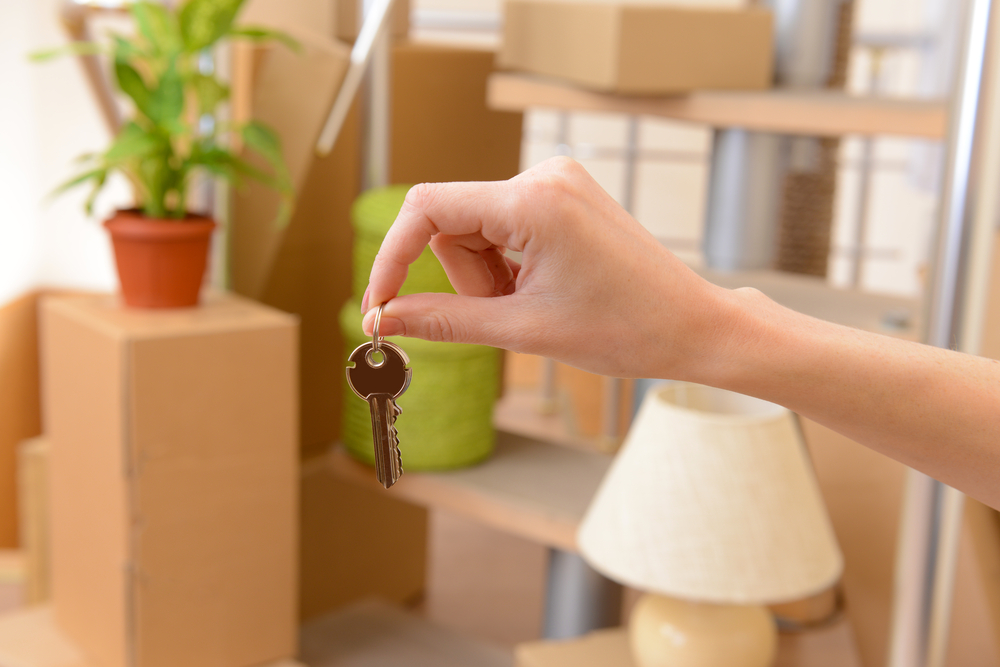Moving, whether it’s your first time moving to an apartment and living on your own or your fifth, is expensive. I can’t say much about the costs associated with buying a house (wish I could!), but apartment living isn’t for the weak of heart. Of the 100 largest cities in the United States, the cheapest rent (calculated as the median for the size and area) is found in Huntsville, Alabama, ($550/month for a two-bedroom) and the most expensive is found in San Francisco, California, ($4,600/month for a two-bedroom). Throw on all the other fees that tenants are required to pay outside of rent, and you’re easily paying between $600 and $5,000 each month—on a student budget. Here’s what you can expect to pay before, during, and at the end of your lease.

OlegDoroshin / Shutterstock.com
Upfront Apartment Costs
- You will probably have to pay an application fee. While application fees are not charged by every landlord or property management company, it is a common practice. Generally, an application fee is between $25 and $50 per person and it goes toward doing a credit check, doing a background check, and verifying rental history for each applicant. Some localities may have laws barring a landlord from charging an application fee if they do not use the money to run a background or credit check; read up on the laws in your city and state before you pay anything. Application fees are nonrefundable.
- Budget for your security deposit. The security deposit is money that you give to your landlord or property manager (typically equal in value to one month’s rent) that is then stored until you move out of the apartment. It is refundable, provided you leave your apartment clean and in excellent condition minus normal wear and tear. For this reason, it’s extremely important to be thorough when you fill out a sheet of the apartment’s deficiencies upon move in (this is a list of scratches, dents, things that are broken, damages, etc.) as this is what will be used to assess the damages that you have caused. Leaving a small nail hole in the wall probably won’t cost you anything, but leaving a fist-sized hole is going to be problematic.
- Factor in extra for pet deposits and/or pet rent if you have pets. If you have a pet (see: “Should You Get a Pet in College?”), first, you need to find out if the apartment that you’re looking at even allows them. Some allow only cats, only cats and small dogs (<35 pounds), only cats and all dogs excluding “aggressive breeds,” or all animals. Some may choose not to allow animals at all. If your pet is allowed in your prospective apartment, check to see how much it is going to cost you. Pet deposits can cost up to $500 and may or may not be refundable (provided your pet doesn’t leave stains or tear up the carpet). Pet rent, however, is simply like paying your rent on a smaller scale. It’s nonrefundable and you must continue paying it for the duration of the lease. Pet rent is less common than being asked to pay a pet deposit, and nothing about pet rent works out in your favor; try to avoid apartments that charge it if possible.
- Find out if you’re required to have renter’s insurance, and then buy it anyway. Many landlords require their tenants to have renter’s insurance because even if the landlord insures the property, it doesn’t cover anything that isn’t owned by the landlord (i.e. all of your stuff). If it’s required, you must purchase a policy and furnish your landlord with proof of insurance, but you should do the same even if it isn’t required. If your apartment is burgled, renter’s insurance will step up to cover the loss of your belongings, and it may also cover weather events (lightning, fire, hail) that result in the destruction of property. Of all the types of insurance you can get, renter’s is likely to be the cheapest (just a couple hundred a year), especially if you bundle it in with your car insurance or other insurance policy.
- Remember that it’s not free to move. Even if you move on your own, you still have to pay for the gas that it takes you to get there and pay for all of your furnishings, plus the cost of delivery when you get there. You could use a rental truck, in which case you’ll pay a base fee, a fee per mile, and whatever it costs to refill the gas tank. Or the most expensive option is to hire someone to do the moving for you; this will easily cost $1,000. You get to avoid the bruises and the sore muscles but at a steep price. The farther away from your current house you’re moving, the more expensive it’s going to be.
Recurring Apartment Costs
- You must pay your rent every month. This is a no-brainer. If you don’t pay your rent, you could be evicted and your credit score will tank. If you pay your rent late, you’re going to be charged a late fee. Just pay your rent (and your pet’s), period.
- You will be liable for your own utilities. The utilities that are covered by your landlord (or included in your monthly rent) will be listed in your lease. Everything that’s not listed, you’ll be required to pay on your own. Typically, trash and recycling are included if you live in a community, but you’ll have to pay for your own water, electricity, and gas, and those costs depend on how much you use each month. Extra services, like internet and cable, will cost you extra money. Be ready to spend an extra few hundred dollars a month to cover these utilities; if you’re not living alone, know how you’re going to split the charges amongst roommates ahead of time.
- If you’re going to stay for more than one year, find out if there are any annual fees. You may have to pay an annual fee to park in the apartment or community lot or pay an HOA (homeowners’ association) fee. Some communities give out two passes per apartment for the pool and gym and expect anyone else who wants to use the facilities to pay for the privilege. Check with your landlord or property management company to learn about annually recurring fees and factor them into your budget.
- If you move out before the end of your lease, you may have to continue to pay. A lease is a legally binding document, and you are bound to everything that is included in the lease. If you need to move out before the end of the lease, you may have to pay rent for the duration of the lease. Check the document, though; there may be a lease-break clause included. The wording will vary, but you may be able to give 30 days notice and pay an extra fee for leaving early, which could be less overall than the remainder of the rent if you’re lucky. If you can’t break the lease legally, you could also try to work it out with your landlord (and cross your fingers that he or she is feeling lenient) or ask to sublet. You will be responsible for finding a subletter for the duration of the lease, but provided you have a friend who can step in in your place (and be approved by the landlord), it’s a good temporary fix.

Africa Studio / Shutterstock.com
Move-Out Apartment Costs
- You’ll have to pay for cleaning costs. You have to leave your apartment in excellent condition if you want any chance of getting your security deposit back. Cleaning services may be specified in your lease (if you have pets, for example, you may be required to show proof that you’ve had the carpet professionally cleaned). Some landlords just want to see a clean house, though, in which case you can probably skip the professional cleaners and put in the work yourself. Either way, you’re spending time or money in order to get back more money as a reward.
- Any damages that you caused must be repaired. If you managed to discolor the paint, stain the carpet, or break a light fixture, you need to pay to have those fixed or else your landlord is going to do it for twice the price and charge your security deposit. Likewise, you need to make sure all light bulbs work and provide a new furnace filter if your air conditioning unit is in your apartment. Leave the apartment as close to how you found it as possible.
- If you have a pet, you may have to pay pest control to inspect the apartment. Again, it comes down to what is written in your lease. It may be specified that you have to have someone check the apartment for fleas and ticks or that your landlord wants a blanket treatment done to carpets. Provided you do what they say and show a receipt for services rendered, you shouldn’t have to worry about recovering your security deposit.
-
Should You Get a Pet in College?
-
The Best Food Blogs for Students Who Want to Cook for Themselves
-
Five Strategies for Finding the Perfect Off-Campus Apartment Fast
-
How to Find a Roommate When You Move Somewhere New
-
Do This, Not That: Move-In Day
-
Furniture to Buy New and What’s Okay to Buy Used
-
How to Initiate and Have Difficult Conversations with Your Roommate
-
Successfully Apartment Hunting Using Craigslist: It’s Possible
-
College Dining: What I Wish I’d Known about Food on Campus
-
Co-Ed and Gender-Neutral Housing from the 1960s to Present
-
Eight Must-Have Features in Your College Apartment
-
Must-Have Skills for Living on Your Own the First Time

